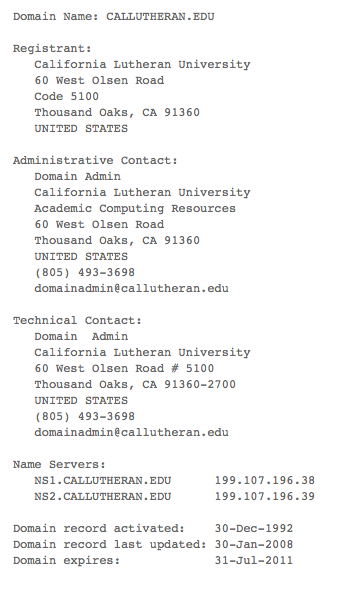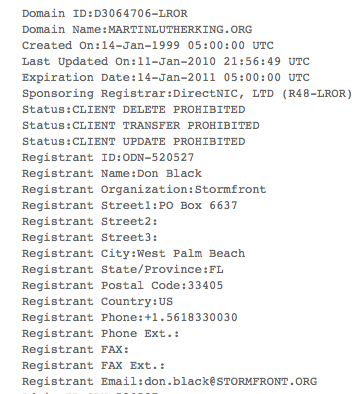Sep
27
Websites are useful places to find information about a topic. But how do you know if the source is credible? Besides figuring out who the author is and his/her credentials, looking to see the page has ads, and whether or not the page is up to date — another thing you can do is to check who owns the website. Knowing who the website belongs to can help to determine the accuracy and credibility, and whether or not you should be using it in your essays.
Use WhoIS (pronounced “who is”) to find out who owns the site. Look at the example below for the Cal Lutheran website:

Who is the registrant? Is there contact info for the person? When was the information last updated? All this can help you determine if this is a website you should be using in your papers.
Here is an example of an erroneous website:

Looking at the website itself, it looks legit. But looking at the WhoIs information tells you more. The registrant to this website is an organization called StormFront. A little web searching about the organization reveals that StormFront is a white supremacy group. Although the website looks reliable, there is a hidden agenda behind it. Don’t be fooled. Check WhoIs to determine website credibility the next time you cite a website in your works cited/bibliography/references list.
No comments yet. Be the first.
Leave a reply